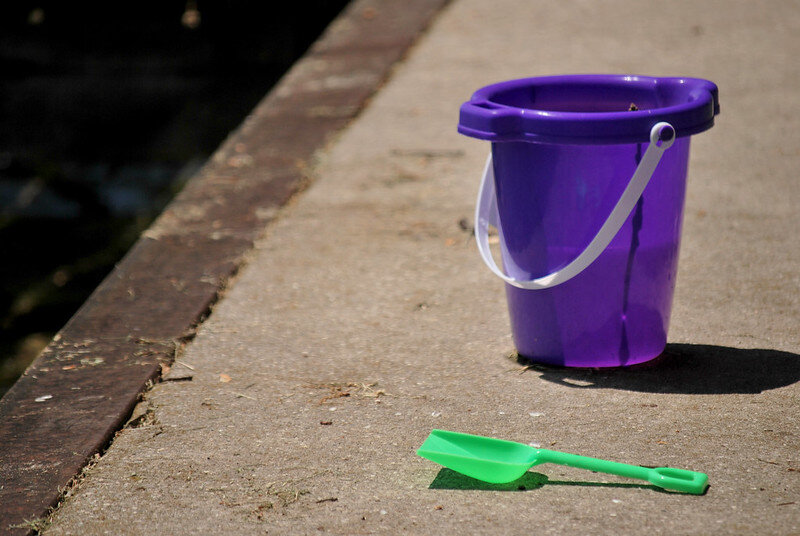The children are digging.
We like when they dig. “This is good,” we say, especially to the children. The behavior seems instinctual; children first meet their mothers, and then they meet the dirt, and the latter may pull them from the former. There is a connection to dirt and digging and digging and the life to be found in layers. All sorts of reasons to love it, they tell us. We know they don’t need to think about it. Flies bury their young in dirt and flesh and think nothing of it. Children are much the same, except in their digging--they remove, leaving little behind.
Out with their buckets,
they collect things; they learn to ignore sticks. We aren’t impressed with sticks. Sometimes we are impressed with rocks, but they know rocks are iffy. They look for other things. The class trip to Gettysburg was fruitful; bullet and button and artifact, all in the dirt. We had to leave when a child found bones. They were untouched. It was this chaperone who started crying who got all the adults crying. The children: speculative. They measured emotion by holding rulers to the chaperones’ faces and doing complicated physics to track the speed of the tears. The body lay confused somewhere far back in the dirt, reaching less like a zombie and more like an uncomfortable summer sleeper whose feet stick out from under covers.
Back home,
we really do like when they dig. We really do tell them this is good, though they leave the town pockmarked like a complicated minigolf course. One child shows adult a bucket, they’ve collected: leaf. “This,” he says, “do you see it?” He is asking us to perform shape recognition as if with clouds, as if we daydream and see anything but Jesus in everything. We scribble something on pads. Child picks up on the silence, says “rat. R-A-T. rat rat rat. When it dried it curled into Rat and it moves like a ghost in the breeze. Cool, ain’t it?” More scribbling. Nothing positive.
What is down there:
They’ve started to dig up massive eggs. They want nothing more than to crack them open. “Like toys! Like quarter machine. Coin, Turn, Toy. Open.” We will not let them. The children are American, imagine they’ve struck China. Of course not.
It’s like the bodies.
We understand it in a way you don’t. We go dinosaur deep. We cry at bodies that look so much like our own, under X-ray. We remember what sticks underneath, what stinks in the grave, what holds us in. Sometimes the children fall in their holes and they don’t come back up. We empty buckets. We take eggs. Send the bucket sailing down with them. Mothers surrender to dirt.
“This is good,” we say. We like it when they dig.
Kellie Rankey can be found in Saginaw, Michigan, where they graduated from Saginaw Valley State University in 2019 with a Bachelor of Arts in creative writing and sociology. Though they are still busy taking classes to keep the dream of grad school alive, they spend plenty of time whittling down flash fiction word counts, watching documentaries, cooking up vegan dishes, and trying to figure out where the wind will blow them tomorrow. Wherever that is, they’ll tweet about it. Twitter: @titdance
Photo by Michael W. May on Foter.com / CC BY-NC-ND

